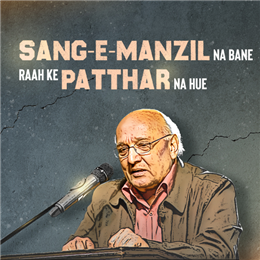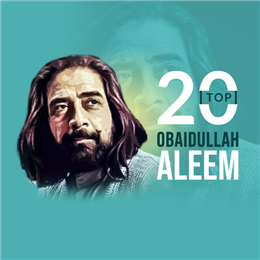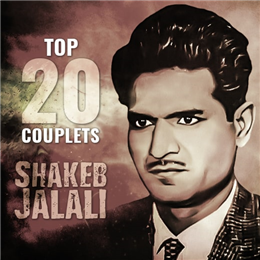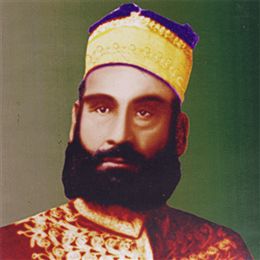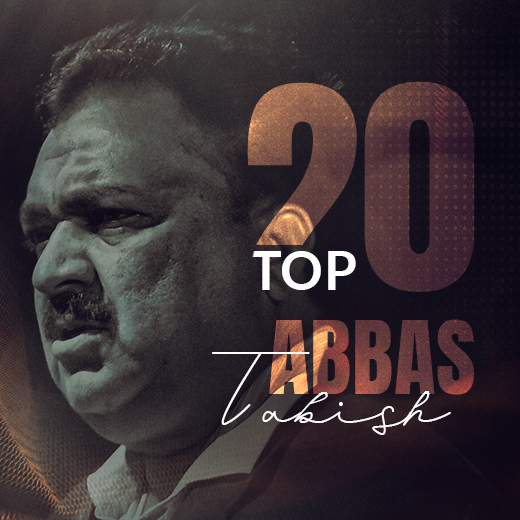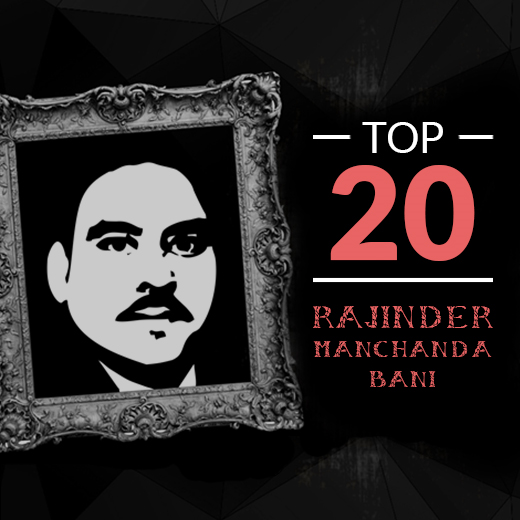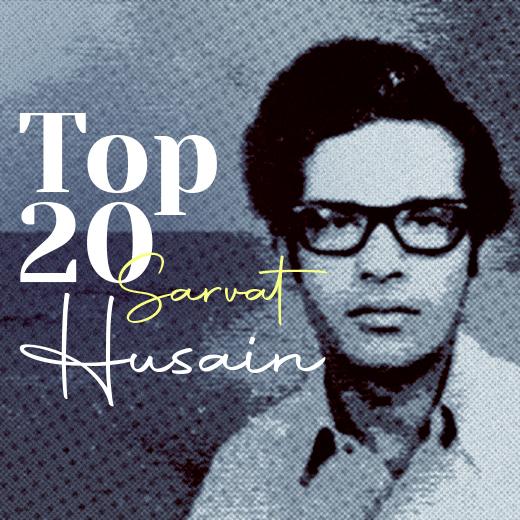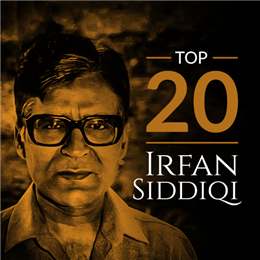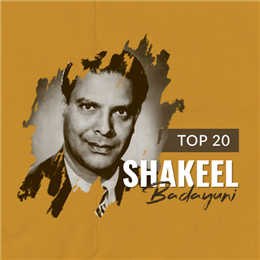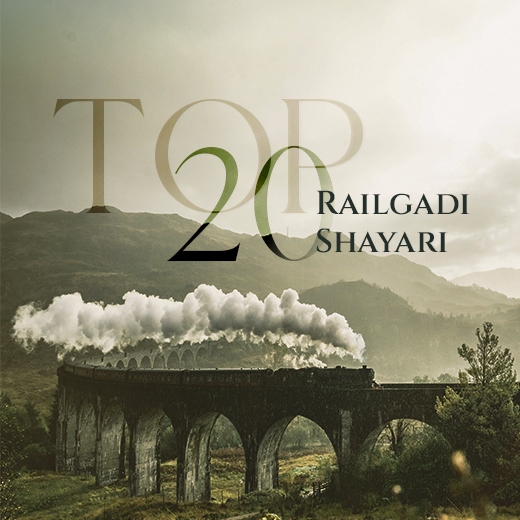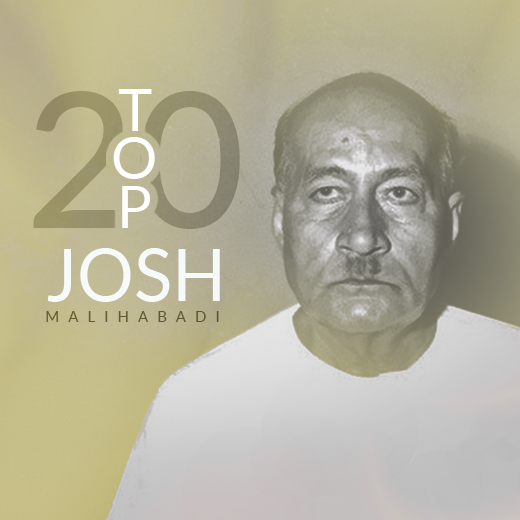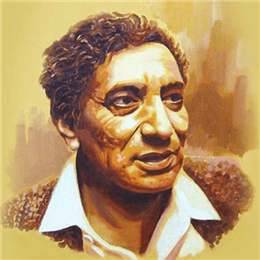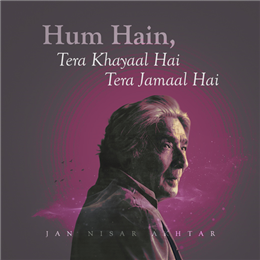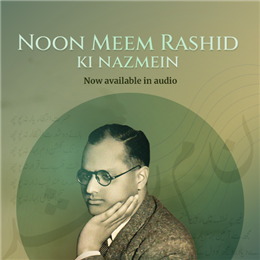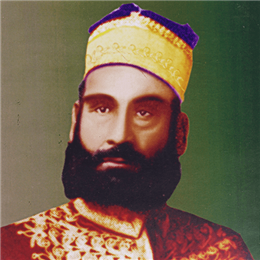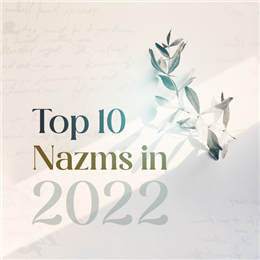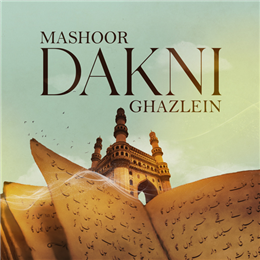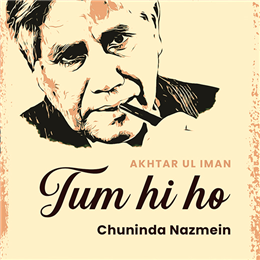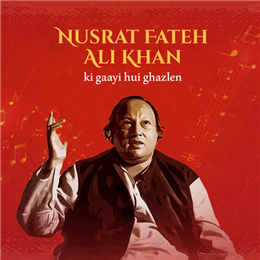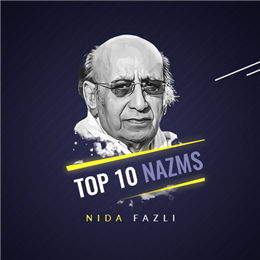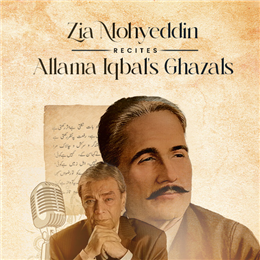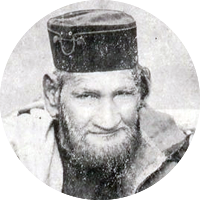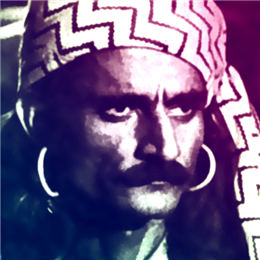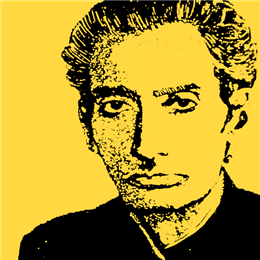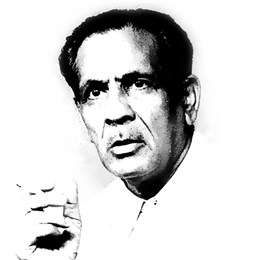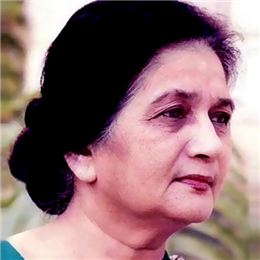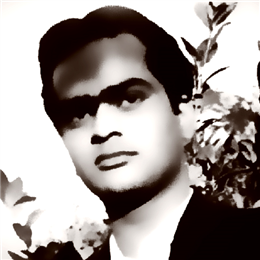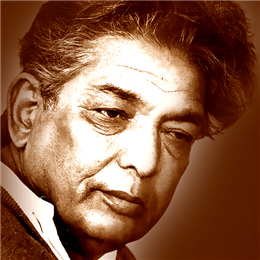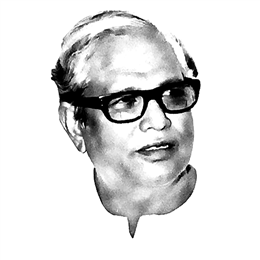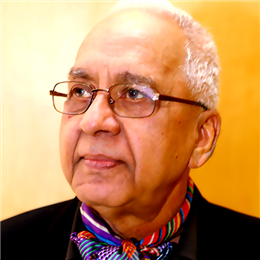Quiz A collection of interesting questions related to Urdu poetry, prose and literary history. Play Rekhta Quiz and check your knowledge about Urdu!
Today's top 5 Urdu Shayari
URDU POETRY COLLECTION
Compilation of top 20 hand-picked Urdu shayari on the most sought-after subjects and poets
URDU CROSSWORD
Rekhta's online crossword puzzle - the world's first Urdu online crossword for free. Developed in collaboration with Amuse Labs, these puzzles are specially designed to improve your knowledge of Urdu language, literature, and culture. Challenge yourself with new crosswords and engage in playful learning.
Start playing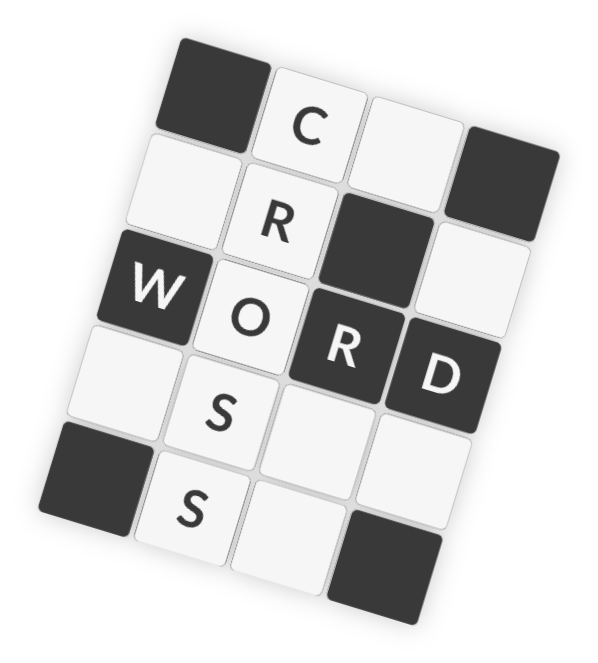
BUY HINDI & URDU BOOKS
Get latest Urdu books & Hindi books online only on Rekhtabooks.com
Browse Rekhtabooks.comDID YOU KNOW ?
Chacha Chhakkan, an unforgettable comic character created by Syed Imtiyaz Ali Taj, is etched deep into our collective consciousness. It all started with English writer Jerome K. Jerome’s famous novel ‘Three Men in A Boat’ in which a character named ‘Uncle Podger’ humorously struggles to hang a portrait on the wall. Later, in 1944, the editor of the magazine ‘Nairang-e-Khayaal’ requested Imtiyaz Ali Taj to translate this section of the book for the magazine’s Eid issue. Instead of translating the section, Imtiyaz Ali rewrote it afresh, and Uncle Podger came to be known in Urdu as Chacha Chhakan. Owning to the great reception of Urdu readers, more such columns were demanded, and thus, about ten such articles came to being in which facets of Chacha Chhakkan's private life are humorously depicted, too. It’s also noteworthy, that recently Danish Iqbal wrote a play with Chacha Chhakkan as the central character, which has been staged well several times.
DID YOU KNOW ?
The word Eid means the day of happiness that returns again and again. Eid-ul-Fitr, an important Islamic festival, is often referred to as “MiThi Eid” in India. This festival is celebrated all over the world on the first day of the Islamic month of Shawwal after the fasting of Ramazan. On this day Muslims also give away ‘Fitrah’ or alms to the poor, and that’s why the occasion is called Eid-ul-Fitr.
In Urdu poetry, there is such an abundance of couplets that center around “Eid ka Chand dikhna” and “Eid Ke Din Gale Milna” that an entire book could be compiled around them.
Eid Ka Chand tum ne dekh liyaa
Chand Ki Eid ho gayi hogii
“Eid Ka Chand Hona” is a proverb quite common in everyday parlance that means to meet after a long time.
Wonder what “Eidi” is all about? Well, the bounties or gifts offered by the elders of the house or relatives to children are known as Eidi. Additionally, a Nazm or couplet that Ustads wrote on fancy-pages and presented to their students just a day before Eid as greetings of this auspicious event in exchange of a tutelage was also known as Eidi. Moreover, the fancy-pages upon which these verses were written were called Eidi as well. Also, fruits, sweets, and cash offerings that are exchanged among in-laws are known as Eidi, too.
DID YOU KNOW ?
Ever wondered what’s the connection between the word ‘Pahar’ and ‘Pahre-Daar’? In ancient India, ‘Pahar’ used to be the unit of keeping time - with each day consisting of 8 Pahars, and each Pahar as long as 3 hours.
During each Pahar, a ‘Pahre-Daar’ would be performing watchmanship, and at the end of each hour, he would strike a metal bell and announce that he was on guard; besides, it was also the way to know what time it was. ‘Pahar’ is derived from the Sanskrit word ‘Prahar’.
The word ‘Pahre-Daar’, however, has now been limited to meanings such as watchman, guard, or sentry. In Urdu poetry, the phrases ‘Aath Pahar’, ‘Raat Ke Pichhle Pahar’, and ‘Sih-Pahar’ are abundantly found. Like:
sih-pahar hī se koī shakl banātī hai ye shaam
ḳhud jo rotī hai mujhe bhī to rulātī hai ye shaam
In Persian, ‘Sih’ means three. And, the third Pahar of a day is also known as ‘Sih-Pahar’.
DID YOU KNOW ?
The Hindustani tradition of celebrating the first roza (fast) of a child in the month of Ramadan is called Roza-Kushai. The word Kushaaii means to open, begin or to initiate.
When a child fasts for the first time in their life, it is honoured by inviting friends and family for iftar on that particular day. The Roza-Kushai event is celebrated by making new clothes for the child and friends and family present gifts and money to the child as well. Every child remembers this day for the rest of their lives.
DID YOU KNOW ?
Ever wondered what is ‘Gulabi Urdu’, and what is its connection with Mulla Ramuzi (1896-1952)? Well, it is noted as one of Urdu language’s standout prose works in which Mulla Ramuzi has parodied the difficult, word-to-word Urdu translations of the old times. Born Sadiq Irshad, Mulla Ramuzi, was a well-known journalist, satirist, and poet from Bhopal. So unique was his style of highlighting political and social issues in his Gulabi Urdu that the British government’s press act seldom caught hold of it in the newspapers, while Urdu knowers could wittily made sense of it. But in addition to this style, he also wrote satirical and humorous articles on common people's issues in simple language which became very popular. In Bhopal, the office of the Madhya Pradesh Urdu Academy is located in the building named, ‘Mulla Ramuzi Sanskriti Bhavan’. Nowadays, the term ‘Gulabi Urdu’ has also come to be known as the confluence of regional vocab and accents in the Urdu language.
SHAYARI COLLECTION
Today's Special
Prominent later classical poet and a beloved desciple of Ghalib.
ham apnā jo qissa sunāne lage
vo bole ki phir sar phirāne lage
hum apna jo qissa sunane lage
wo bole ki phir sar phirane lage
RECOMMENDED POETS
Essential collection of Iconic poets – a list that goes beyond the realm of fame and populism
Featured Video
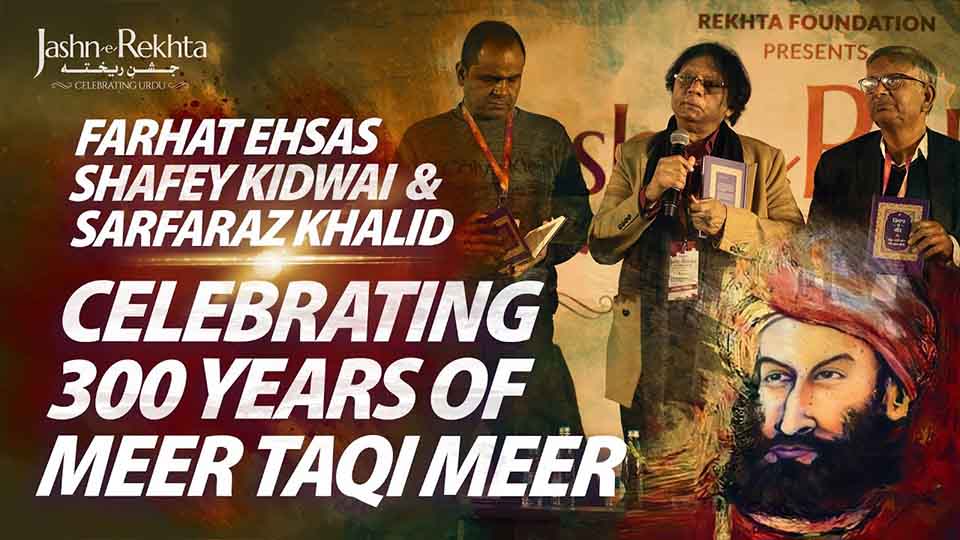
E-Books Library
Discover books & magazines in the world’s largest online collection of Urdu literature
View More E-BooksMore from Rekhta

हिन्दवी डिक्शनरी
हिंदी क्षेत्र की भाषाओं-बोलियों का व्यापक शब्दकोश
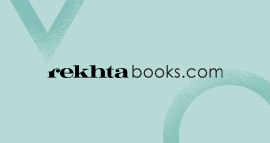
Books Bazaar
Buy Urdu & Hindi books online
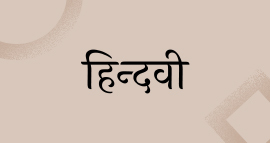
Hindi Literature
A vibrant resource for Hindi literature

Sufi Literature
A feature-rich website dedicated to sufi-bhakti tradition

Rekhta Dictionary
A trilingual dictionary of Urdu words
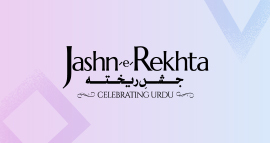
Urdu Festival
The world's largest language festival

e-Learning Platform
Get a unique experience of learning language, literature & culture
Jashn-e-Rekhta | 8-9-10 December 2023 - Major Dhyan Chand National Stadium, Near India Gate - New Delhi
GET YOUR PASS





